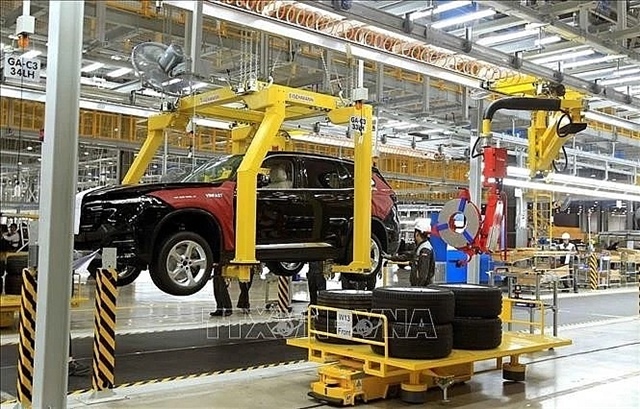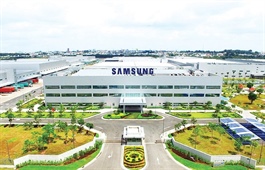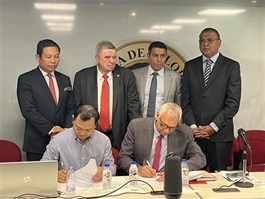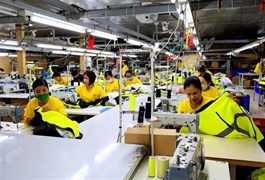Politburo issues resolution on private economic sector development
Politburo issues resolution on private economic sector development
According to the resolution, after nearly four decades of economic reform, the sector has grown steadily in both scale and quality, becoming one of the key driving forces of the socialist-oriented market economy.

Car production at VinFast plant in Cat Hai, Hai Phong city. (Photo: VNA) |
Party General Secretary To Lam, on behalf of the Politburo, has signed Resolution No. 68-NQ/TW, dated May 4, 2025, on the development of the private economic sector.
According to the resolution, after nearly four decades of economic reform, the sector has grown steadily in both scale and quality, becoming one of the key driving forces of the socialist-oriented market economy. It now includes over 940,000 registered enterprises and more than 5 million household businesses, contributing approximately 50 per cent of the nation’s GDP and over 30 per cent of total state budget revenue, and employing about 82 per cent of the national workforce. A number of private firms have emerged as major players, establishing strong brands and expanding into regional and global markets.
However, the resolution notes that the private sector still faces numerous challenges and has yet to meet expectations as the core engine of the national economy. Most enterprises remain micro-, small-, or medium-sized, with limited financial and management capacity. Their technological capabilities, innovation levels, labour productivity, and competitiveness are generally low. Strategic vision is often lacking, and linkages with state-owned and foreign-invested enterprises remain weak.
The Politburo attributes these shortcomings to several factors, primarily an incomplete understanding of the private sector’s role in the economy, inadequate institutional and legal frameworks, and insufficient protection of property rights and business freedom. Private firms also struggle to access resources and benefit from incentives, while operational costs remain high.
Resolution No. 68 sets ambitious goals for the sector by 2030, aiming for it to become the most important driver of the national economy, a leading force in science, technology, innovation, and digital transformation. Targets include having 2 million active enterprises, 20 operating firms per 1,000 people, and at least 20 large firms integrated into global value chains. The resolution also expects the private sector to grow 10–12 per cent on an annual basis, to contribute 55–58 per cent of the GDP and 35–40 per cent of state budget revenue, and to employ 84–85 per cent of the workforce. The group’s innovation and digital transformation capabilities are set to rank among the top three in ASEAN and top five in Asia.
Toward 2045, the resolution envisions that the private sector would grow rapidly, robustly, and sustainably, taking a proactive role in global production and supply chains, and possessing strong competitiveness at both regional and international levels. By then, the target is for it to comprise at least 3 million enterprises and contribute over 60 per cent of GDP.
Resolution No. 68 also outlines specific tasks, solutions, and implementation mechanisms to realise these objectives.
- 16:35 05/05/2025























